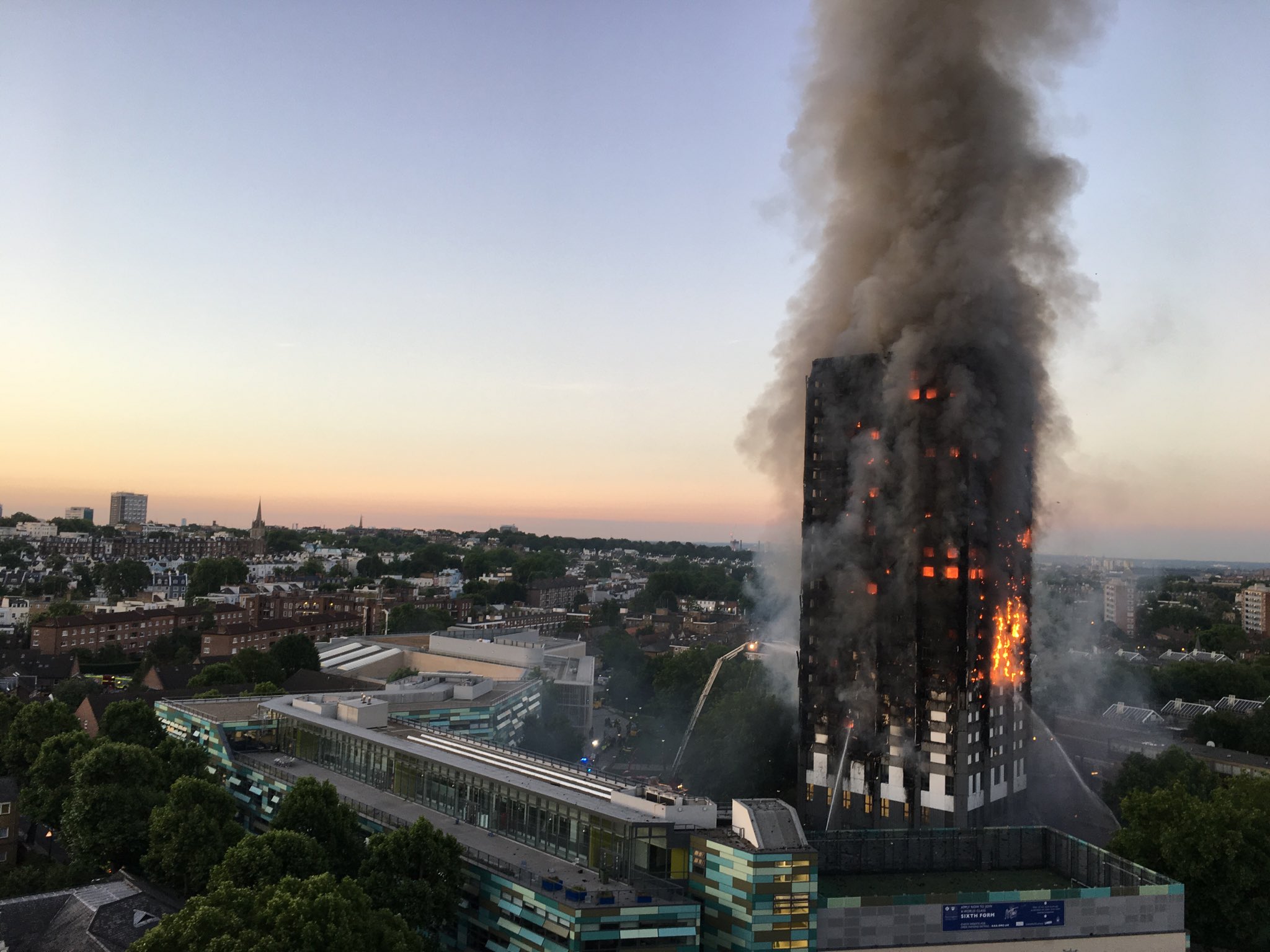07 June 2018
“The Tower”
Andrew O’Hagan’s examination of the Grenfell Tower disaster.
By J R Thomas
The Tower is an extraordinary piece of investigative journalism, written by the novelist and essayist, Andrew O’Hagan. It is the result of O’Hagan’s detailed examination of what happened before, during, and after the disastrous and heartbreaking fire in Grenfell Tower in Ladbroke Grove, west London.
To carry through and publish such a work a year after the terrible events is both brave and extraordinary, brave because of the passions which the fire evokes, and extraordinary because it in many way is a one man pre-emption of the Moore-Bick enquiry, which has just begun hearing evidence and is likely to sit until October. O’Hagan has interviewed many of the people involved in the fire, including survivors, helpers, professionals and experts, fire service personnel, and politicians both local and national. It is the first true picture of what went on, difficult and uncomfortable reading, rightly so.
The Tower takes apart much of what we have heard from politicians and read in the media so far. Some matters that go to legal liabilities will have to wait until the outcome of the Moore-Bick enquiry, and subsequent decisions on potential prosecutions, but O’Hagan’s incisive enquiries and explanations change much of the received wisdom and should make many of those involved in this tragedy very uncomfortable. He draws attention to the failing chain of command of the London Fire Brigade, and whose advice to residents to stay in their flats accounted probably for most of the deaths. “Stay put” is standard advice for those in a high rise building in the event of a fire threat; but the brigade stuck to that advice long after it was clear that total evacuation was essential. The fire personnel at the scene were extraordinarily brave and energetic but that could not compensate for lack of strong and decisive crisis management.
More astonishing are O’Hagan’s revelations about the Kensington and Chelsea Council, their management company which runs the borough’s social housing, and the Grenfell Action Group (the local action group which campaigned, supposedly, for the residents best interests). The media presentation of these bodies is that they were, respectively: obsessed with costs and gentrification; incompetent; saintly – feeding neatly the public simplistic sound-bite obsessed need for villains and blame-carriers. But the truth is complex; the council and its personnel seem generally good people doing their best to improve matters, whilst the action group had become remote from its roots, obsessed with a political and class struggle against the council. O’Hagan attacks leading national politicians from all sides for grandstanding and for using the disaster for political point-scoring; and, most devastatingly, the UK building industry, obsessively focussed on cost rather than any moral dimension, which will need to closely examine its methodologies and responsibilities.
The Tower has been described by other journalists as one of the most important and best written journalistic essays of modern times, a work which should make us all consider our responsibilities, and our humanity. It deserves to be read by every citizen of the UK.
“The Tower”, by Andrew O’Hagan, is the main component of the current edition of “London Review of Books”, £4.25 or online. I understand it may be published soon as a book or pamphlet.


